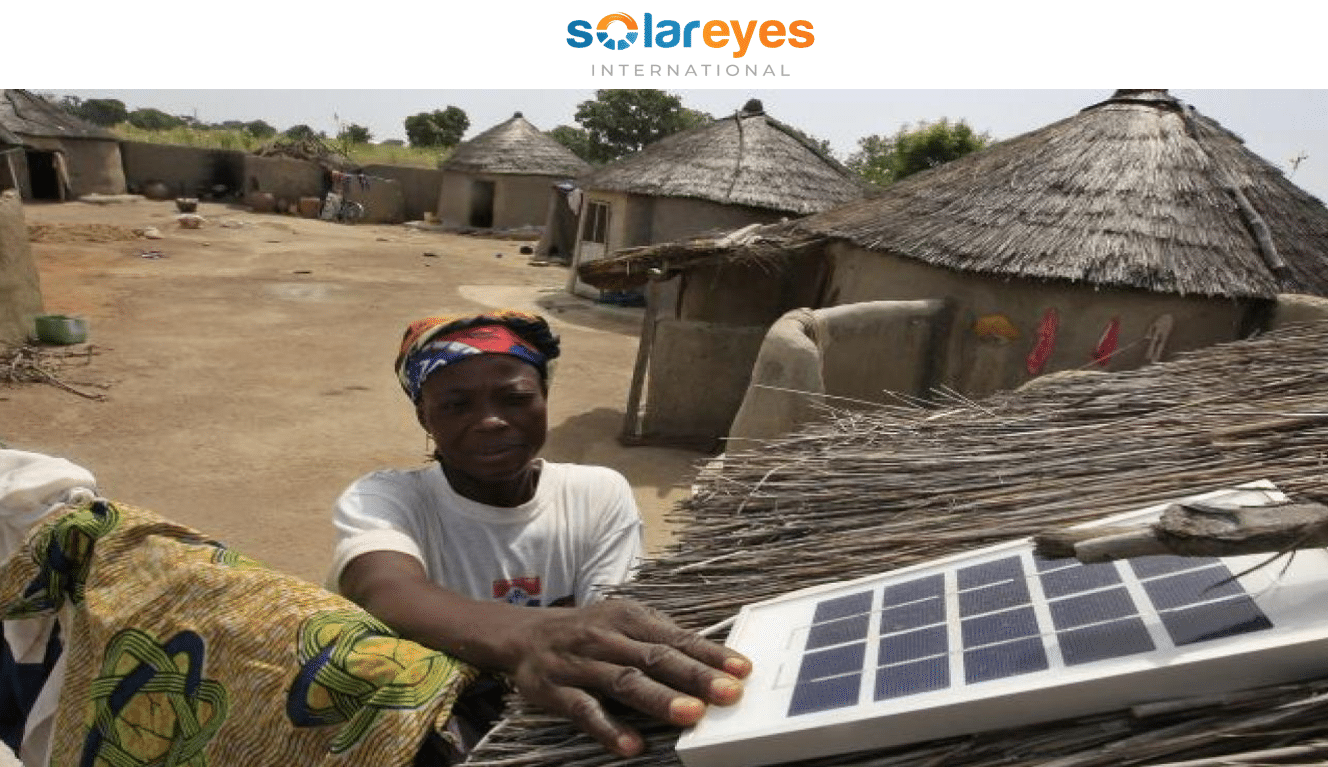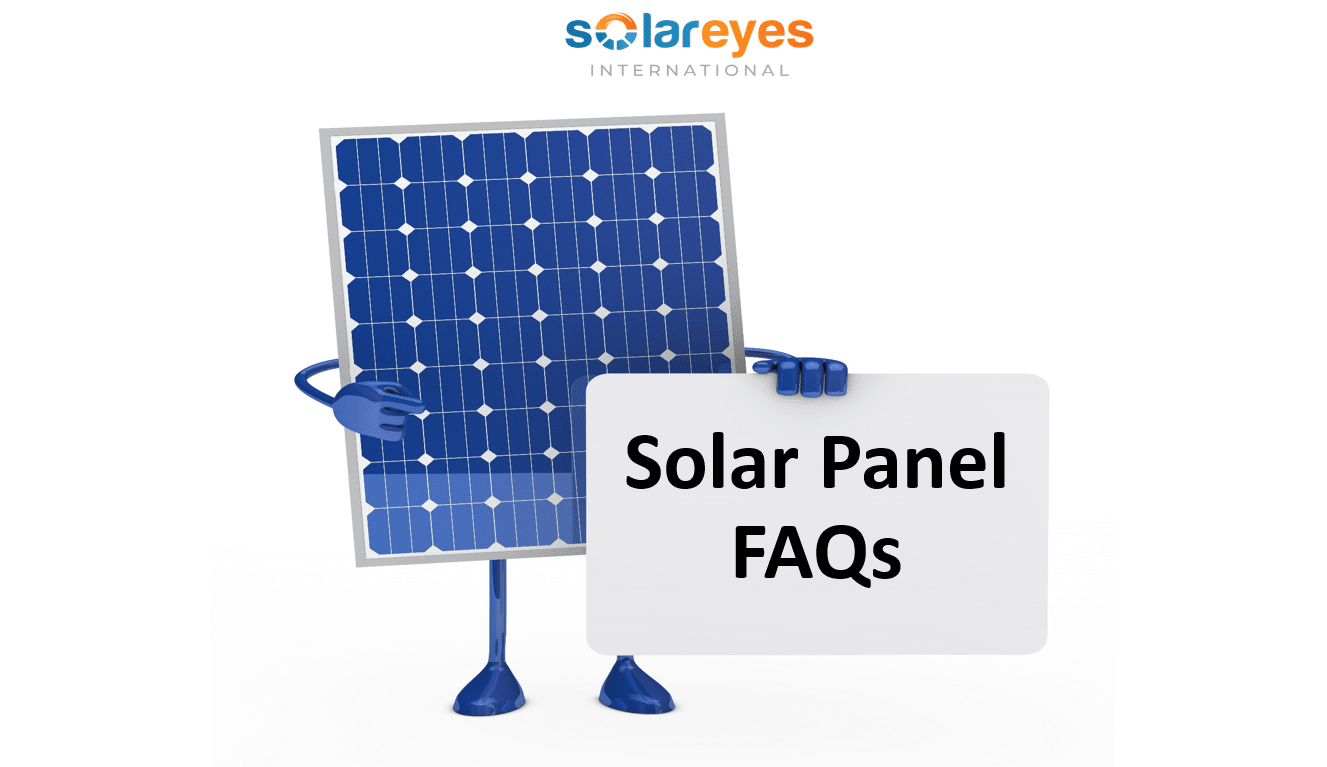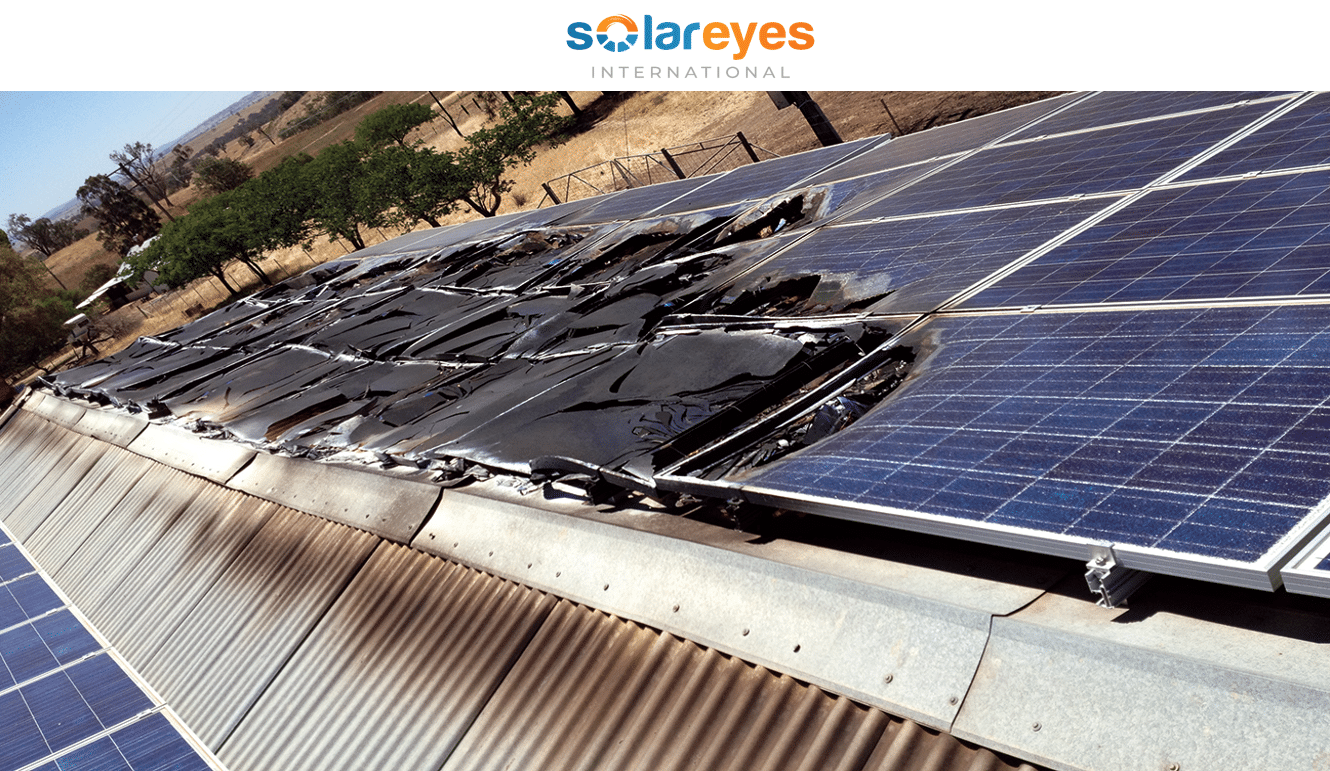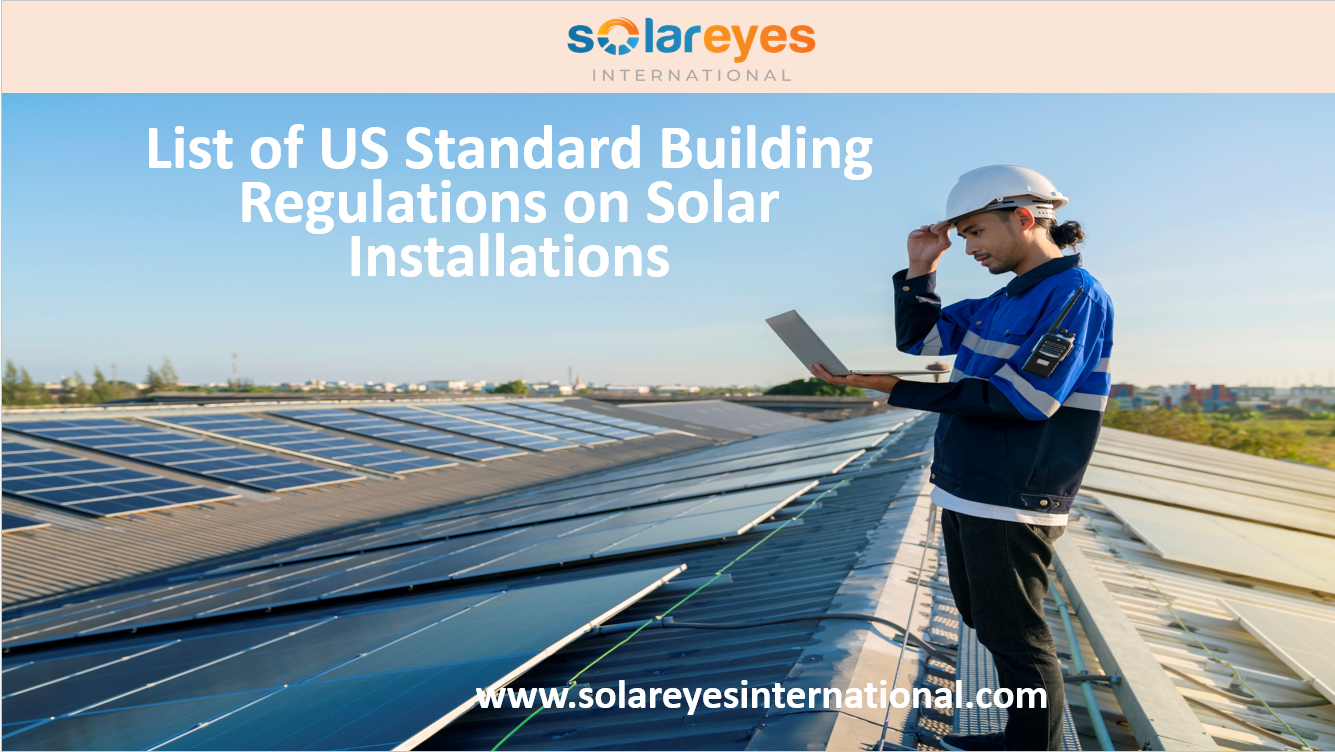Why the Need for Standard Building Regulations on Solar Installations
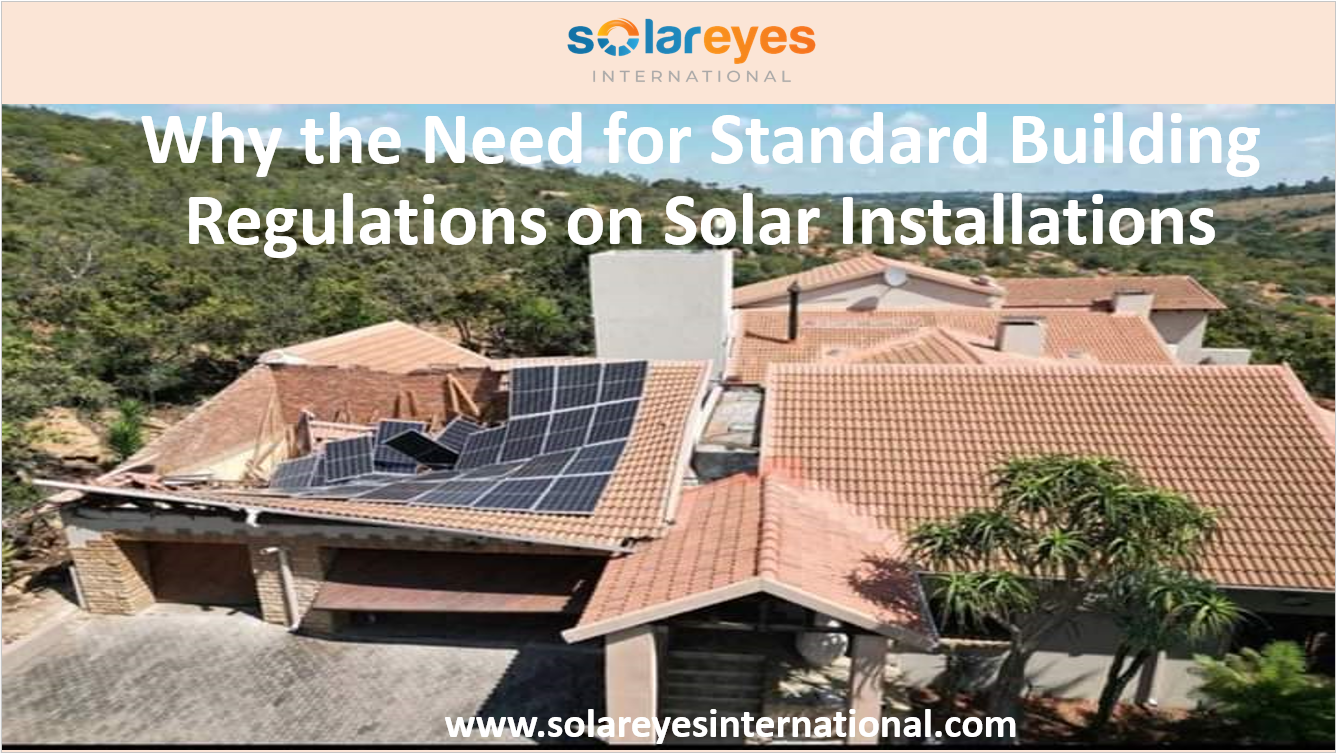
With the increasing demand for renewable energy, solar installations have become a popular choice for many homeowners and businesses.
The use of solar energy has gained popularity in recent years, with many consumers opting for solar installations as an alternative to traditional sources of energy.
However, the lack of standard building regulations on solar installations has raised concerns about safety and quality. This is why there is a need for standard building regulations on solar installations.
***ALSO CHECK: List of US Standard Building Regulations on Solar Installations
Standard building regulations can ensure that solar installations are safe for consumers and the public.
Solar installations involve the installation of solar panels on rooftops, which can pose a risk to the public if not installed properly. Standard building regulations can ensure that solar panels are installed in a way that minimizes the risk of accidents and injuries.
Moreover, standard building regulations can ensure that solar installations are of high quality. Solar panels that are not installed properly can be inefficient, which can result in higher energy costs for consumers.
SOLAR PANEL LOSSES: All you Need to Know + Tips on how to avoid them
Standard building regulations can ensure that solar panels are installed in a way that maximizes their efficiency, resulting in lower energy costs for consumers.
Standard building regulations can also ensure that solar installations have minimal environmental impact. Solar panels that are not installed properly can have a negative impact on the environment, such as causing water pollution or soil erosion.
Standard building regulations can ensure that solar installations are designed and installed in a way that minimizes their impact on the environment.
Finally, standard building regulations can protect consumers from unscrupulous solar installation companies. Some solar installation companies may cut corners to save costs or use substandard materials, which can result in unsafe or inefficient installations.
Y Combinator Startups on Clean Energy and Sustainability
Standard building regulations can ensure that solar installation companies are held to a high standard and that consumers are protected from these types of companies.
Reasons why there is a need for standard building regulations on solar installations
Here are some reasons why there is a need for standard building regulations on solar installations:
Safety Concerns
Without standard building regulations, there is no guarantee that solar installations are safe for the public.
Poorly installed solar panels can cause fires, electrical shocks, and other safety hazards. Standard building regulations can ensure that solar installations are installed according to safety guidelines and meet safety standards.
Quality Control
Standard building regulations can ensure that solar installations are of high quality and meet industry standards. This can prevent substandard solar installations that may not last long or may not perform as expected.
Solar Panels on Your Roof in South Africa? Here is How to Qualify for a Tax Rebate
Standard building regulations can ensure that solar installations are installed by qualified professionals who follow industry standards and best practices.
Environmental Impact
Standard building regulations on solar installations can also help to reduce the environmental impact of solar installations.
For instance, regulations can ensure that solar panels are installed in locations that are suitable for solar energy production and do not harm the environment. Regulations can also ensure that solar installations are designed to be energy-efficient and minimize waste.
Consumer Protection
Standard building regulations can also protect consumers from unscrupulous solar installation companies.
With standard regulations in place, consumers can be confident that solar installations are installed according to industry standards and best practices. This can help to prevent fraud and other types of exploitation in the solar energy industry.
Frequently Asked Questions(FAQs) on Standard Building Regulations on Solar Installations
Below we will answer some common questions about standard building regulations on solar installations.
Question 1: What are some standard building regulations on solar installations in the US?
Answer 1: Some of the standard building regulations on solar installations in the US include the International Building Code (IBC), National Electric Code (NEC), California Solar Permitting Guidebook, Florida Building Code (FBC), and New York State Unified Solar Permit.
Opportunities for Solar Energy Development in Europe
Question 2: What is the role of standard building regulations in ensuring safety?
Answer 2: Standard building regulations are designed to ensure that solar installations are safe for both the installer and the consumer. These regulations require proper grounding, wiring, and labeling, as well as adequate ventilation and fire protection measures.
Question 3: How do standard building regulations ensure quality control?
Answer 3: Standard building regulations require that solar installations meet certain quality control standards. For example, they may specify the type and quality of materials that can be used, as well as the installation methods that must be followed.
Question 4: What is the role of standard building regulations in protecting the environment?
Answer 4: Standard building regulations on solar installations are designed to minimize the environmental impact of these installations. These regulations may require that solar panels be installed in a way that minimizes shading or that inverters be used that minimize energy loss.
SOLAR PV MODULE MANUFACTURING PROCESS EXPLAINED – from solar cells to solar panel
Question 5: What is the role of standard building regulations in consumer protection?
Answer 5: Standard building regulations on solar installations are designed to protect consumers by ensuring that they receive a high-quality installation that is safe and efficient. These regulations may require that installers be licensed and insured, or that specific warranties be provided to the consumer.
Question 6: Are there any important standards for solar panels and inverters?
Answer 6: Yes, there are several important standards for solar panels and inverters. These standards may specify the efficiency or durability of the panels or inverters, as well as the safety features that must be included.
Question 7: Do different states or municipalities have their own regulations and permitting processes?
Answer 7: Yes, many states and municipalities have their own regulations and permitting processes for solar installations. It is important to check with local authorities to ensure that all requirements are met before installation.
Conclusion
Standard building regulations on solar installations are crucial for ensuring the safety of the public, quality control, environmental impact, and consumer protection.
With standard regulations in place, solar installations can provide a reliable and sustainable source of energy for homeowners and businesses.
FOLLOW US ON OUR CHANNELS
Follow us on LINKEDIN, FACEBOOK, TELEGRAM GROUP and WHATSAPP.
*** ALSO CHECK: ABBREVIATIONS IN THE SOLAR ENERGY SECTOR
HOW TO SIZE A SOLAR SYSTEM – 5 clear steps anyone can follow


